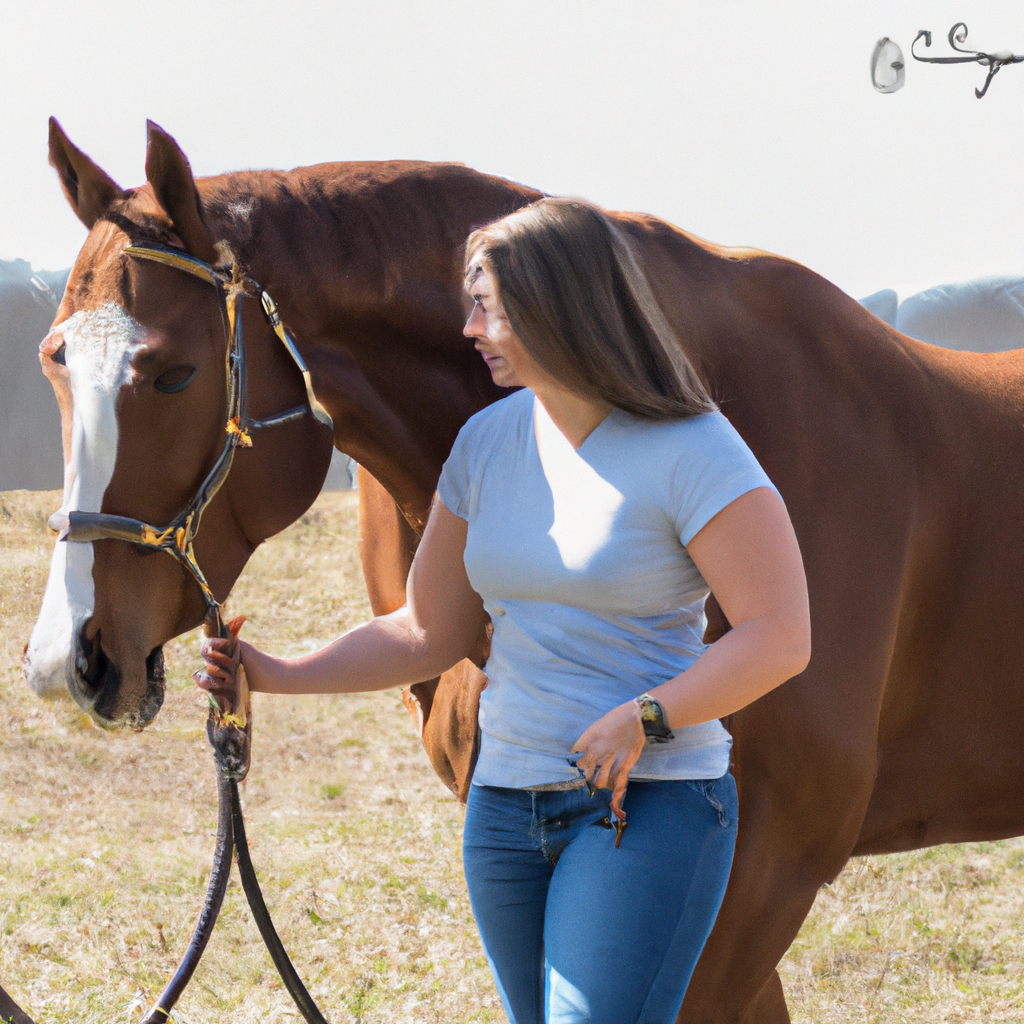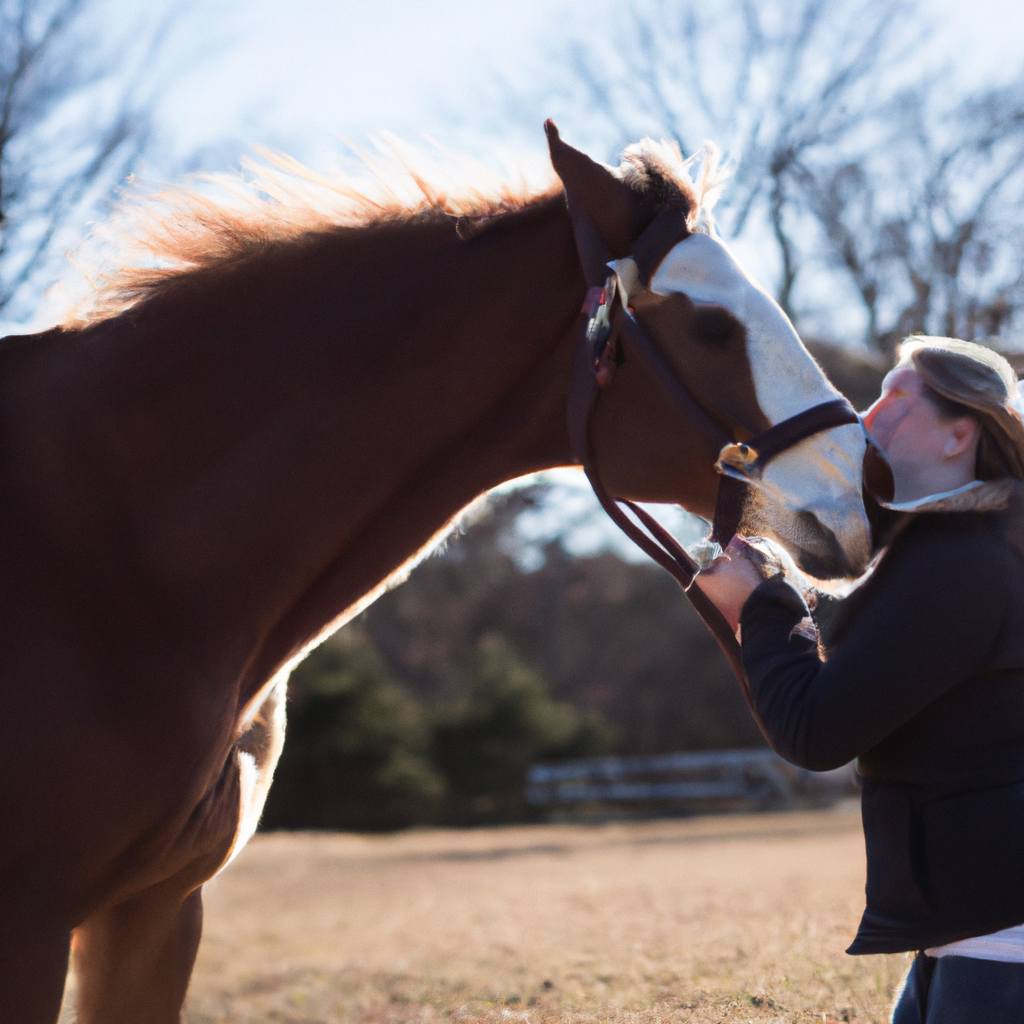“The Bond Between a Rider and their Horse: Lessons in Love” explores the profound connection between horse and rider and the invaluable lessons that can be learned through this relationship. Horses have been faithful companions to humans for centuries, serving as partners, teachers, and sources of solace. This article will delve into the unique bond that is forged between horse and rider, highlighting the ways in which this connection can teach us about love, trust, patience, and resilience. Whether you are an experienced equestrian or someone who has yet to experience the joy of horseback riding, this article will provide insight into the deep and meaningful relationship between a rider and their horse.
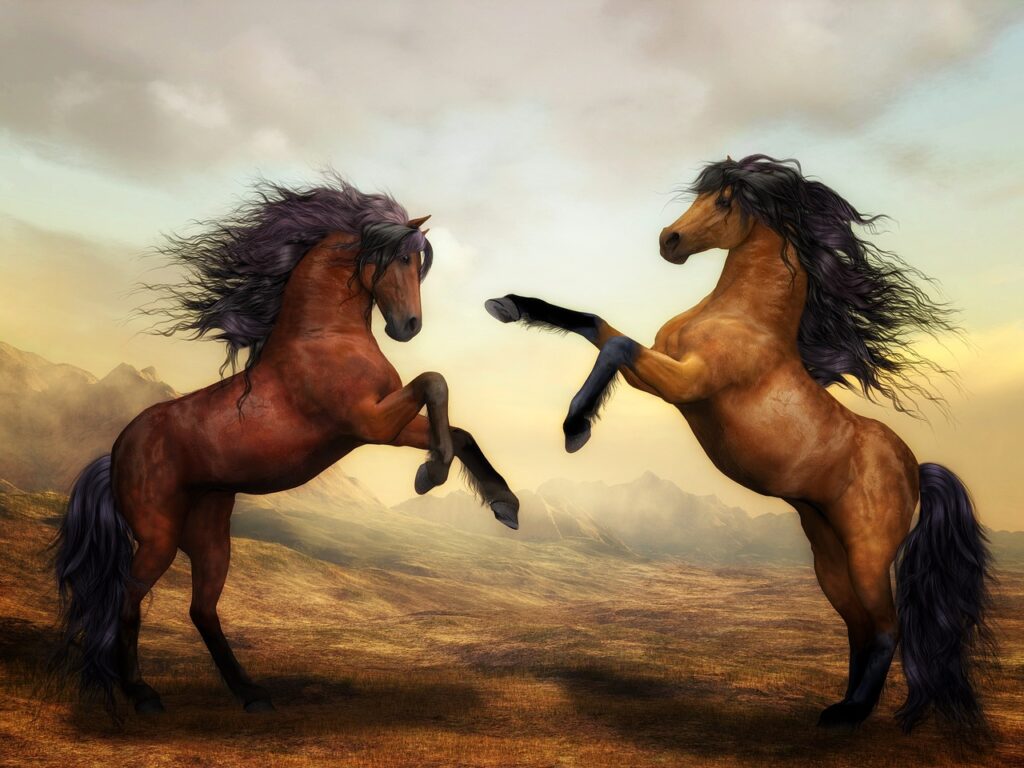
The Connection between a Rider and their Horse
Horseback riding is an activity that involves more than just sitting on a horse and navigating through different terrains. It is an experience that builds a deep and profound connection between the rider and their horse. This bond goes beyond mere physicality and is characterized by trust, communication, and a sense of partnership.
Understanding the bond
The bond between a rider and their horse is built on a foundation of mutual respect and understanding. It is a unique relationship that goes beyond words and is based on a deep connection at a soul level. Riders often describe their horses as their best friends, confidants, and even therapists. The bond is characterized by a sense of companionship, trust, and love.
How the bond develops
The bond between a rider and their horse develops over time through shared experiences and consistent interaction. Spending time together, both in and out of the saddle, allows the rider and horse to understand each other’s strengths, weaknesses, and preferences. Regular training sessions, grooming, and even just spending time in the horse’s presence contribute to the development of a strong bond.
The importance of trust
Trust is the cornerstone of any successful rider-horse relationship. Both the rider and the horse must trust each other to navigate through various situations and challenges. Building trust with a horse involves being consistent, patient, and empathetic. It requires the rider to create a safe and secure environment where the horse feels comfortable and protected.
The role of communication
Effective communication is essential in any relationship, and the rider-horse bond is no exception. Horses are highly perceptive animals, and they rely on non-verbal cues and subtle body language to understand their riders. As riders learn to communicate with their horses through gentle cues, they develop a unique and intricate language that only they can understand.
Building a strong partnership
The ultimate goal of the rider-horse relationship is to build a strong and harmonious partnership. This partnership is characterized by a deep understanding of each other’s needs, a willingness to cooperate, and a shared goal of mutual growth and development. It is a dynamic and ever-evolving relationship that requires constant effort and dedication from both the rider and the horse.
Emotional Benefits of the Rider-Horse Relationship
The rider-horse relationship goes beyond physical benefits and has a profound impact on the emotional well-being of both the rider and the horse. Here are some of the emotional benefits that riders can experience through this unique bond:
Enhancing emotional well-being
Spending time with horses and engaging in horseback riding activities can have a positive impact on a rider’s emotional well-being. Interacting with horses has been shown to reduce stress, lower blood pressure, and increase the production of endorphins, which are known as the “feel-good” hormones. Horseback riding provides a sense of relaxation, joy, and overall emotional balance.
Therapeutic effects of horseback riding
Horseback riding has long been recognized for its therapeutic effects on individuals with physical, cognitive, and emotional disabilities. Equine-assisted therapy programs have been successfully used to help individuals with autism, PTSD, anxiety, and depression. The soothing presence of horses, combined with the rhythmic motion of riding, can provide a unique form of therapy and promote emotional healing.
Boosting self-confidence
The rider-horse relationship can significantly boost a rider’s self-confidence. Mastering the art of horseback riding requires patience, perseverance, and skill, and achieving goals and milestones with a horse can give riders a great sense of accomplishment. As riders develop a stronger connection and improve their riding abilities, their self-esteem and self-confidence soar.
Developing empathy and compassion
Caring for and working with horses develops a rider’s ability to empathize and show compassion. Horses are highly sensitive creatures, and riders must understand their needs, emotions, and body language to build a successful partnership. This understanding of a horse’s perspective can translate into increased empathy and compassion towards both horses and other individuals in a rider’s life.
Managing stress and anxiety
Horseback riding provides an excellent outlet for managing stress and anxiety. The rhythmic motion and the connection with the horse can create a sense of calm and relaxation. Additionally, horses have a unique ability to sense and mirror human emotions, which can help riders become more aware of their own stress levels and learn to manage them effectively.
Lessons in Love Learned from Horseback Riding
Horseback riding not only strengthens the bond between the rider and the horse but also teaches valuable lessons in love and relationships. Here are some of the lessons riders can learn from their experiences with horses:
Unconditional love and acceptance
Horses have an incredible capacity for unconditional love and acceptance. They do not judge or hold grudges, and they accept their riders just as they are. Riders can learn to embrace and emulate this unconditional love in their own relationships, fostering a sense of acceptance, understanding, and forgiveness.
Embracing vulnerability
Horses have a way of bringing out our vulnerability and helping us confront our fears and insecurities. Riding requires trust and the willingness to expose ourselves to uncertainty and potential failure. By embracing vulnerability and learning to trust, riders can experience personal growth and form deeper connections with not only their horses but also with other people in their lives.
Patience and understanding
Working with horses teaches riders the value of patience and understanding. Horses have their own personalities, quirks, and needs, and riders must learn to adapt and understand their individual horse’s behavior. Developing patience and empathy can translate into all aspects of life, allowing riders to form stronger, more compassionate relationships with others.
Adaptability and flexibility
Horses are incredibly sensitive creatures that can pick up on even the most subtle cues. As riders learn to adapt their communication and riding style to meet the needs of their horse, they also learn the importance of being adaptable and flexible in their relationships with others. This adaptability allows for better understanding and a smoother flow of communication.
Forgiveness and moving forward
In any rider-horse relationship, there will be moments of frustration, misunderstanding, and even mistakes. Learning to forgive and move forward is a crucial lesson that riders can learn from their horses. Horses do not hold grudges and are always ready to move on from a challenging situation. This ability to forgive and let go can be applied to personal relationships, helping riders maintain healthy and positive connections.
The Role of Horseback Riding in Personal Growth
Horseback riding is not just a recreational activity; it is also a powerful tool for personal growth and self-discovery. Here are some ways in which horseback riding can contribute to personal development:
Self-discovery and self-reflection
Horseback riding provides a unique opportunity for self-discovery and self-reflection. As riders work with horses, they are constantly confronted with their own thoughts, emotions, and reactions. Interacting with horses can help riders gain a deeper understanding of themselves, their strengths, weaknesses, and areas for growth.
Overcoming fears and challenges
Horseback riding requires riders to face and overcome their fears and challenges. Whether it is dealing with a horse’s size and power or navigating through difficult riding situations, riders must develop courage and resilience to succeed. Overcoming fears and challenges in the saddle can translate into increased confidence and resilience in other areas of life.
Improved focus and concentration
Riding a horse requires a high level of focus and concentration. Riders must be present in the moment, attuned to their horse’s movements, and aware of their environment. This focus and concentration can improve cognitive abilities and transfer into other areas of life, such as work or academics.
Building resilience and determination
Horseback riding is not always smooth sailing. There will be falls, setbacks, and moments of frustration. However, these challenges provide an opportunity for riders to develop resilience and determination. Riders learn to get back on the horse, both physically and metaphorically, and push through difficult times with determination and perseverance.
Empowerment and personal empowerment
Horseback riding has the power to empower individuals and promote personal growth. As riders gain confidence, improve their skills, and form a strong bond with their horse, they develop a sense of personal empowerment and belief in their abilities. This empowerment can extend beyond the saddle and empower riders to take on new challenges and pursue their goals with passion and determination.
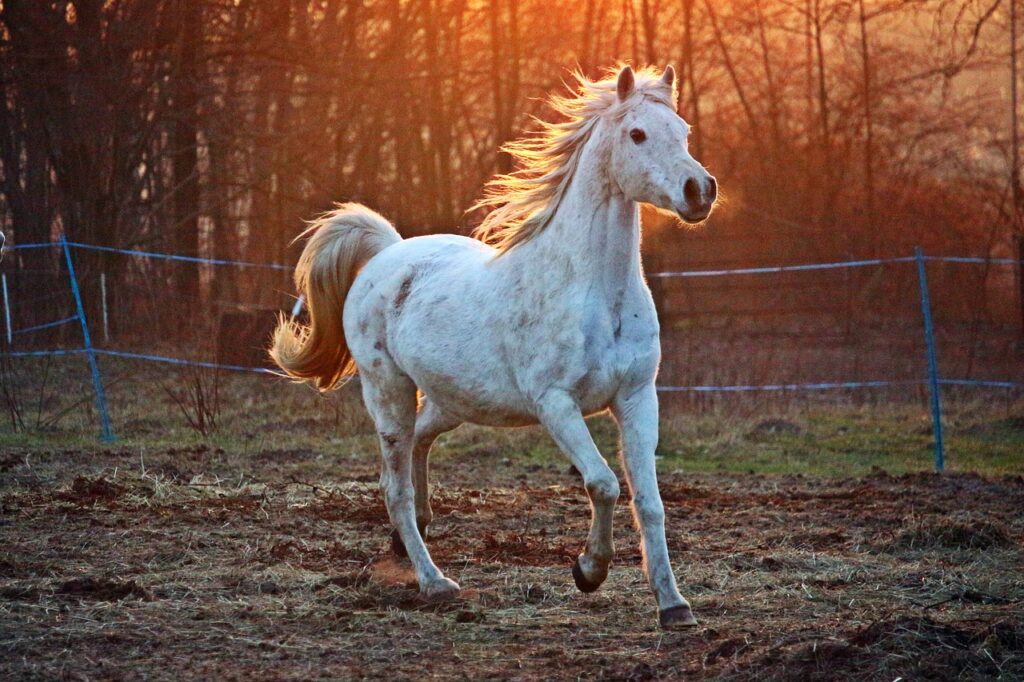
The Horse as a Mirror of the Rider’s Emotions
Horses have a unique ability to reflect and respond to the emotions of their riders. By observing a horse’s behavior and reactions, riders can gain valuable insights into their own emotional state. Here are some ways in which horses act as mirrors of the rider’s emotions:
Recognizing and managing emotions
Horses are highly perceptive animals and can quickly pick up on the subtlest changes in a rider’s emotional state. If a rider is tense, anxious, or angry, a horse is likely to mirror these emotions. By recognizing and managing their own emotions, riders can create a positive and harmonious environment for themselves and their horses.
Creating emotional balance
Working with horses can teach riders the importance of creating emotional balance. Horses respond best to calmness and assertiveness, and riders must learn to regulate their emotions to communicate effectively with their horses. This ability to create emotional balance can also be applied to other relationships and situations in life.
Understanding non-verbal cues
Horses communicate primarily through non-verbal cues, such as body language and energy. By paying close attention to a horse’s non-verbal cues, riders can develop a deeper understanding of their own non-verbal communication and the impact it has on their relationships. This understanding can enhance communication skills and facilitate better connections with others.
Finding harmony and alignment
Horses thrive in an environment of harmony and alignment. When a rider is calm, focused, and in sync with their horse, a sense of unity and connection is achieved. Finding this harmony and alignment requires the rider to be in tune with their emotions and to make conscious efforts to create a positive and balanced state of being.
Healing and emotional release
Horses have a natural ability to provide comfort, support, and even emotional healing. Many riders find solace in the presence of their horses, allowing them to release pent-up emotions and find emotional healing. Horses can provide a safe space for emotional expression and can be a source of comfort during challenging times.
Lessons in Communication and Connection
Communication is the key to a successful rider-horse relationship. Here are some essential lessons that riders can learn about communication and connection through horseback riding:
Non-verbal communication with horses
Horses rely primarily on non-verbal communication, and riders must become proficient in understanding and utilizing this form of communication. By observing a horse’s body language, ears, tail, and facial expressions, riders can decipher a horse’s thoughts and intentions. This non-verbal communication extends beyond the saddle and can enhance a rider’s ability to communicate with others effectively.
Developing a subtle language
As riders spend more time with their horses, they begin to develop a subtle and nuanced language that only they can understand. This language is built on trust, consistency, and clear communication. Through consistent practice and reinforcement, riders can refine their cues and signals to create a seamless and effective means of communication with their horses.
Listening and understanding cues
Successful communication with a horse requires active listening and understanding of their cues. Horses constantly give cues through their body language, movement, and responsiveness, and riders must be attuned to these cues to establish effective communication. By sharpening their listening skills, riders can learn to communicate with clarity and precision.
Synchronizing body and mind
Riding a horse requires riders to synchronize their body and mind. Every movement, every thought, and every emotion is communicated to the horse through the rider’s body language. By cultivating body awareness and control, riders can develop a strong and harmonious connection with their horses.
Establishing a true connection
Effective communication is not just about transmitting information; it is about establishing a true connection. Riders must be present, engaged, and authentic in their communication with their horses. This connection goes beyond signals and cues and is built on a foundation of trust, respect, and mutual understanding.
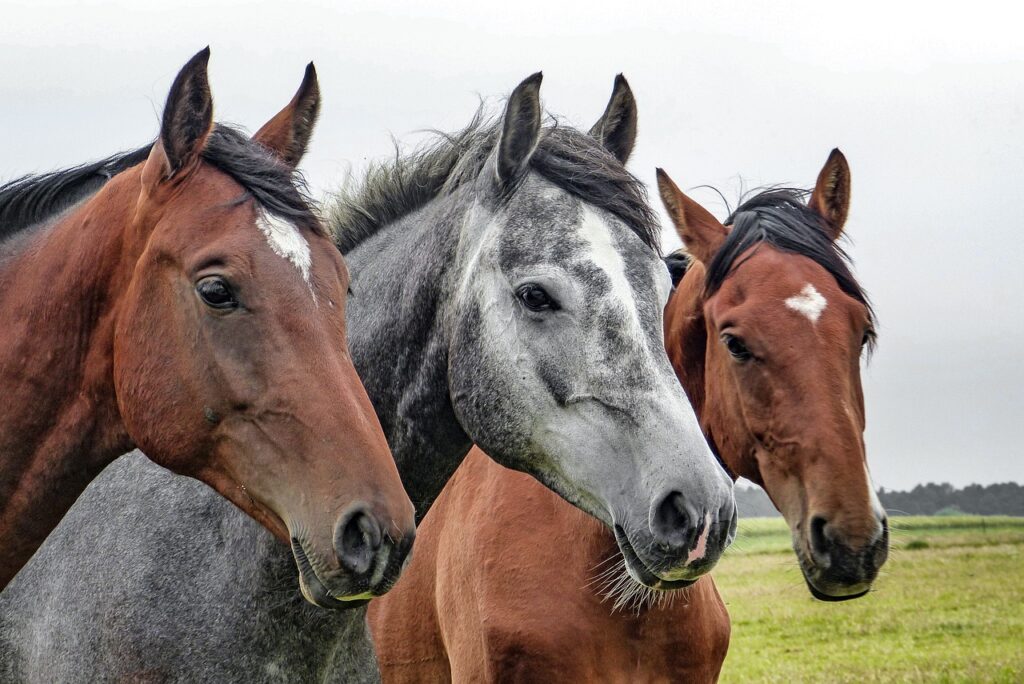
Challenges in the Rider-Horse Relationship
Like any relationship, the rider-horse bond is not without its challenges. Here are some common challenges that riders may encounter in their journey:
Overcoming trust issues
Trust is at the core of the rider-horse relationship. However, building trust can be challenging, especially if the horse has had previous negative experiences or if the rider has experienced a traumatic event. Overcoming trust issues requires patience, consistent training, and a genuine willingness to understand and meet the needs of both the rider and the horse.
Dealing with fear and anxiety
Fear and anxiety can significantly impact a rider’s ability to connect with their horse. Riders may have anxieties related to falling, getting injured, or not being in control. Overcoming these fears involves gradual exposure to challenging situations, working with a qualified instructor or trainer, and developing coping mechanisms to manage anxiety.
Building confidence in the saddle
Confidence is crucial when it comes to riding horses. However, riders may face challenges that shake their confidence, such as falls or unsuccessful attempts at mastering a particular skill. Building confidence in the saddle requires setting realistic goals, celebrating small victories, and seeking support and guidance from experienced riders or instructors.
Addressing riding-related frustrations
Riders may experience frustrations when they encounter difficulties or fail to achieve desired outcomes in their riding journey. It is important for riders to recognize that progress takes time and that setbacks are a natural part of the learning process. Addressing riding-related frustrations involves maintaining a positive mindset, seeking guidance, and adopting a growth-oriented approach.
Resolving conflicts and misunderstandings
Miscommunications, disagreements, and conflicts can arise in the rider-horse relationship, just as they can in any other relationship. Riders must learn to address conflicts and misunderstandings with patience, empathy, and open-mindedness. Seeking professional guidance or assistance can be beneficial in resolving complex or long-standing conflicts.
The Role of Trust in the Rider-Horse Relationship
Trust is the foundation of the rider-horse relationship. Here are some key aspects of trust in this unique bond:
Trust as the foundation
Trust forms the foundation of any successful rider-horse relationship. It is built through consistent, fair, and respectful interactions between the rider and the horse. Trust allows the horse to feel safe and secure in the rider’s presence, and it enables the rider to rely on the horse’s willingness and cooperation.
Earning the horse’s trust
Earning a horse’s trust requires time, patience, and consistent training. Horses are sensitive creatures that can detect any incongruence in a rider’s behavior. Riders must be consistent, reliable, and empathetic in their interactions with their horses to earn their trust. Positive reinforcement and gentle guidance are key to gaining a horse’s trust.
Maintaining trust over time
Maintaining trust is an ongoing process. Riders must continuously reinforce the trust they have established with their horses through consistent and positive interactions. Trust can be maintained by meeting the horse’s physical and emotional needs, providing clear cues and boundaries, and respecting the horse’s boundaries as well.
Rebuilding trust after setbacks
Trust can be shaken in the rider-horse relationship, particularly after setbacks or negative experiences. Rebuilding trust requires patience, understanding, and a commitment to addressing the root causes of the setback. Slow and gradual reintroduction of activities, combined with positive reinforcement, can help rebuild trust over time.
Mutual trust and respect
Trust is a two-way street in the rider-horse relationship. It is important for riders to trust their horses, but it is equally important for horses to trust their riders. Mutual trust and respect create a harmonious partnership and allow for open communication and cooperation between the rider and the horse.
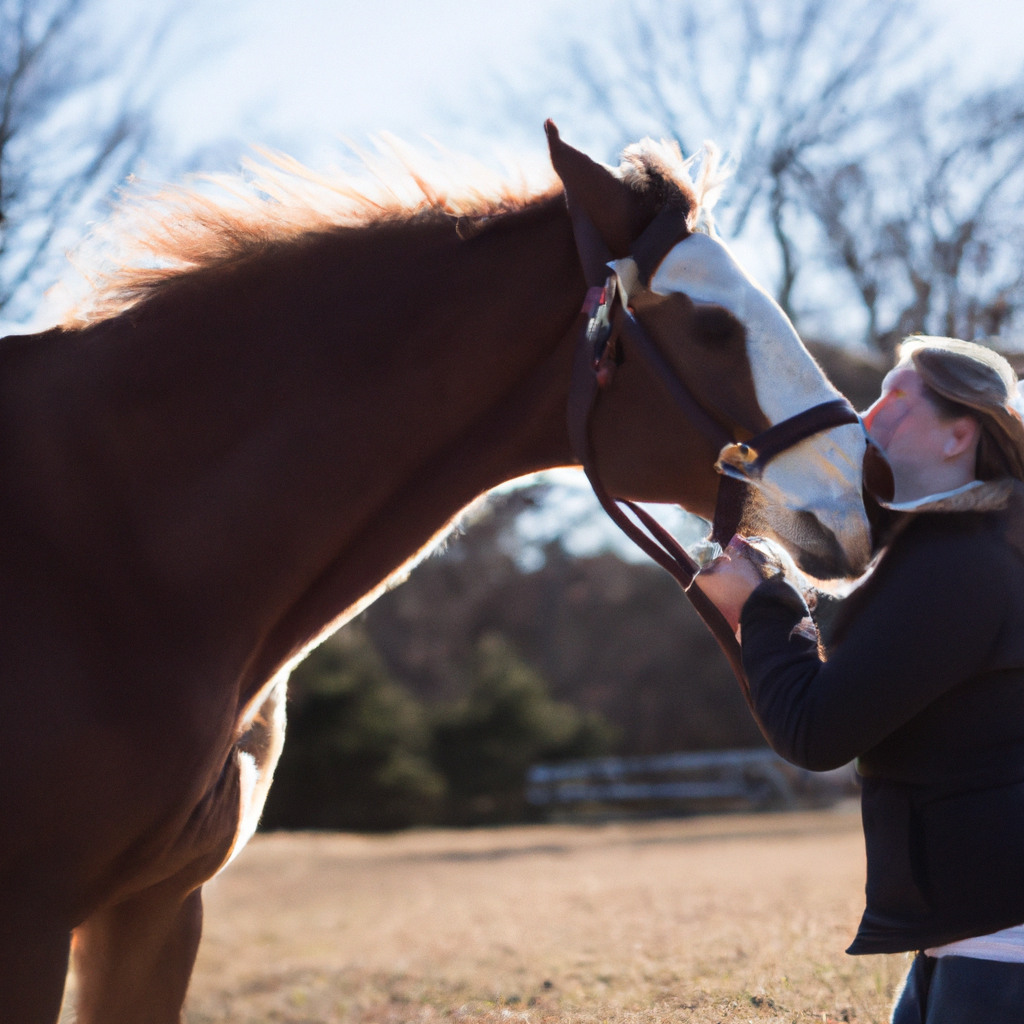
Lessons in Patience and Perseverance
Horseback riding teaches valuable lessons in patience and perseverance. Here are some ways in which riders can develop these qualities through their experiences with horses:
Building patience through horseback riding
Working with horses requires patience, as progress may not always come quickly or easily. Horses have their own learning pace, and riders must be patient as they navigate through the learning process. Over time, riders learn to embrace the journey and appreciate the small steps of progress.
Dealing with setbacks and challenges
Just like in life, setbacks and challenges are inevitable in horseback riding. Riders may face obstacles, encounter difficulties in training, or experience physical or emotional setbacks. Dealing with setbacks requires a resilient mindset, problem-solving skills, and a willingness to adapt and learn from the experience.
Learning from failures and mistakes
Failures and mistakes are valuable learning opportunities in horseback riding. Riders can learn to embrace and analyze their failures and mistakes, understanding them as stepping stones to growth and improvement. By reflecting on these experiences, riders can make adjustments, refine their skills, and ultimately become better riders.
Developing perseverance and grit
Perseverance and grit are essential qualities for success in horseback riding. Riders must be willing to push through challenges, overcome obstacles, and persist even when faced with setbacks. Developing perseverance and grit in the saddle can translate into other areas of life, fostering a resilient and determined approach to achieving goals.
Celebrating progress and achievements
Celebrating progress and achievements, no matter how small, is crucial for maintaining motivation and cultivating a positive mindset. Riders should acknowledge and appreciate their growth, whether it’s mastering a new riding technique or achieving a personal goal. Celebrating progress not only boosts confidence but also encourages further growth and development.
Experiencing Freedom and Connection in Horseback Riding
Horseback riding offers a unique experience of freedom and connection. Here are some ways in which riders can experience these aspects through their relationship with their horses:
The sensation of freedom on horseback
Riding a horse can provide a sense of freedom like no other activity. The power and grace of a horse, combined with the thrill of movement, allow riders to experience a true sense of liberation. The feeling of wind in the hair, the rhythmic motion, and the bond with the horse create a freedom that is hard to replicate in any other setting.
Forming a unique bond with the horse
The rider-horse relationship is characterized by a unique and profound bond. Riders can experience a deep connection and companionship with their horses, often describing it as a soul-to-soul connection. This bond goes beyond words and forms the basis for a fulfilling and meaningful relationship.
Exploring nature and the great outdoors
Horseback riding provides an opportunity to explore nature and the great outdoors. Riders can venture into scenic landscapes, navigate through forests, or gallop across open fields. This immersion in nature allows for a deeper connection with the environment, fostering a sense of peace, wonder, and appreciation for the natural world.
Finding peace and tranquility
Spending time with horses and engaging in horseback riding activities can have a calming and soothing effect on the mind and body. The rhythmic motion of riding, the beauty of nature, and the presence of horses can create a peaceful and serene experience for riders. It is a chance to escape from the pressures and stresses of everyday life and find tranquility in the present moment.
Embodying the joy of riding
The joy of riding is something that every rider experiences at some point in their journey. Whether it is the exhilaration of a fast gallop, the satisfaction of executing a perfect jump, or the simple pleasure of being in the saddle, horseback riding brings forth a sense of joy and fulfillment. This joy is infectious and can permeate other areas of life, bringing a brighter and more positive outlook.
